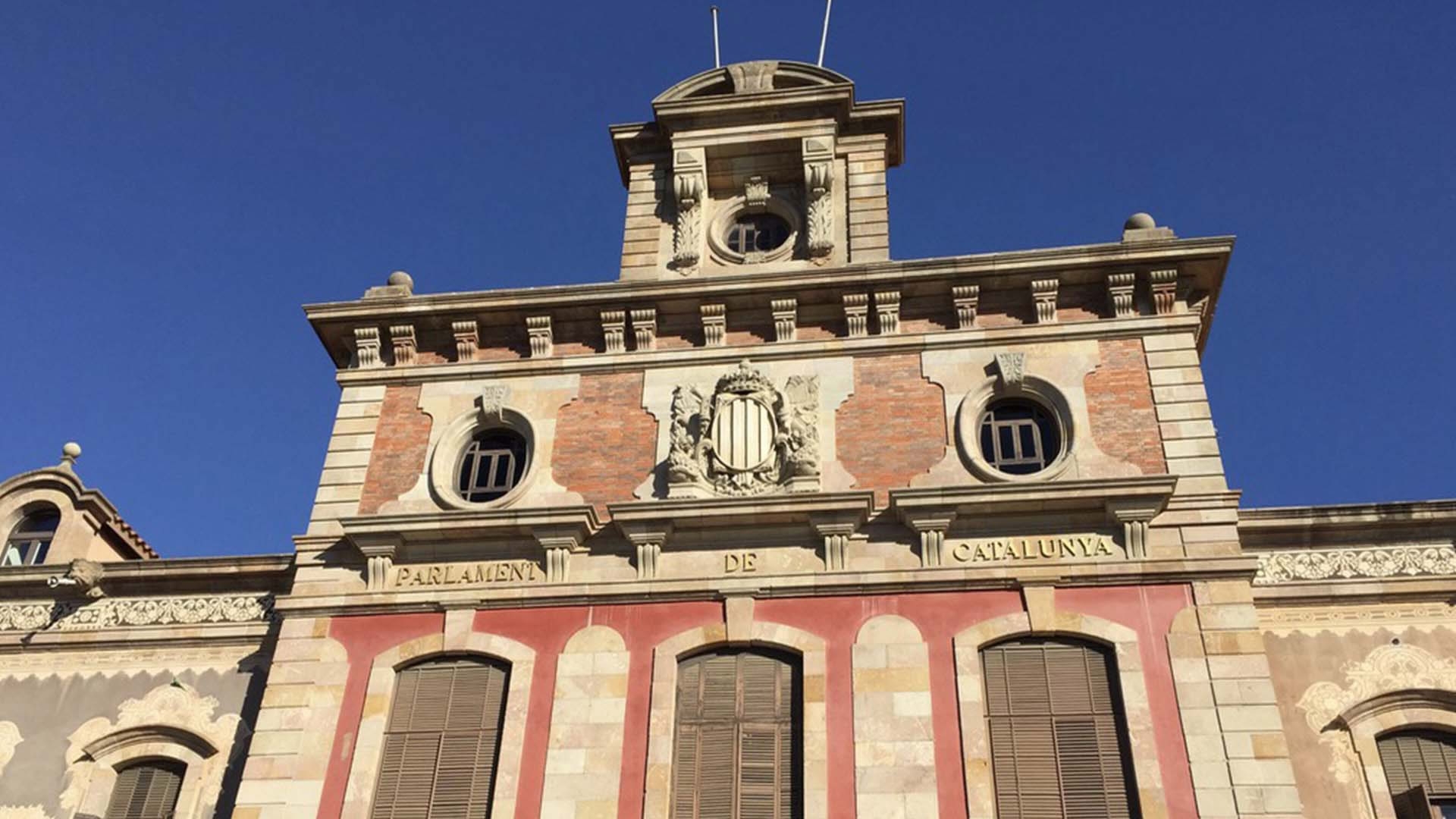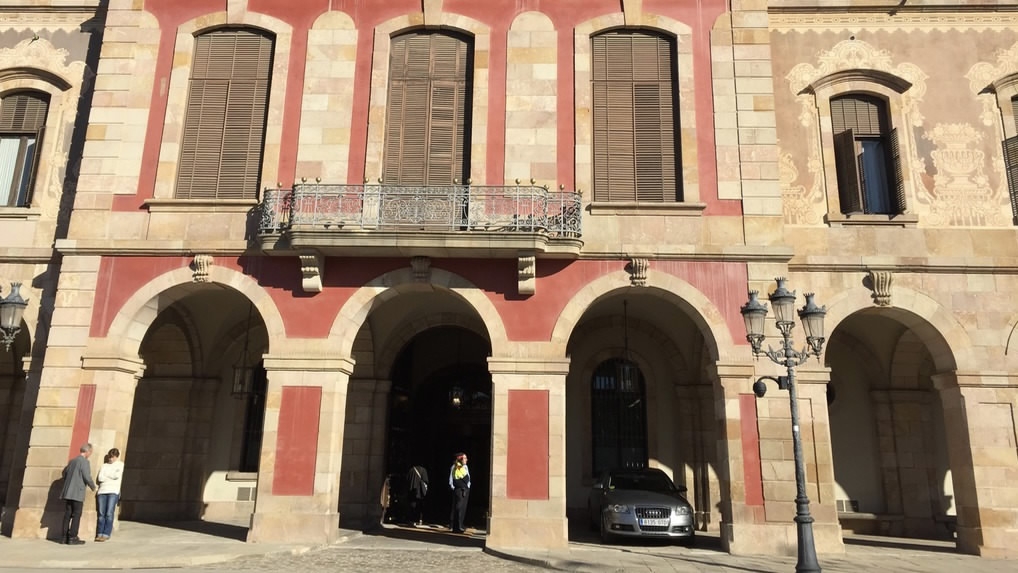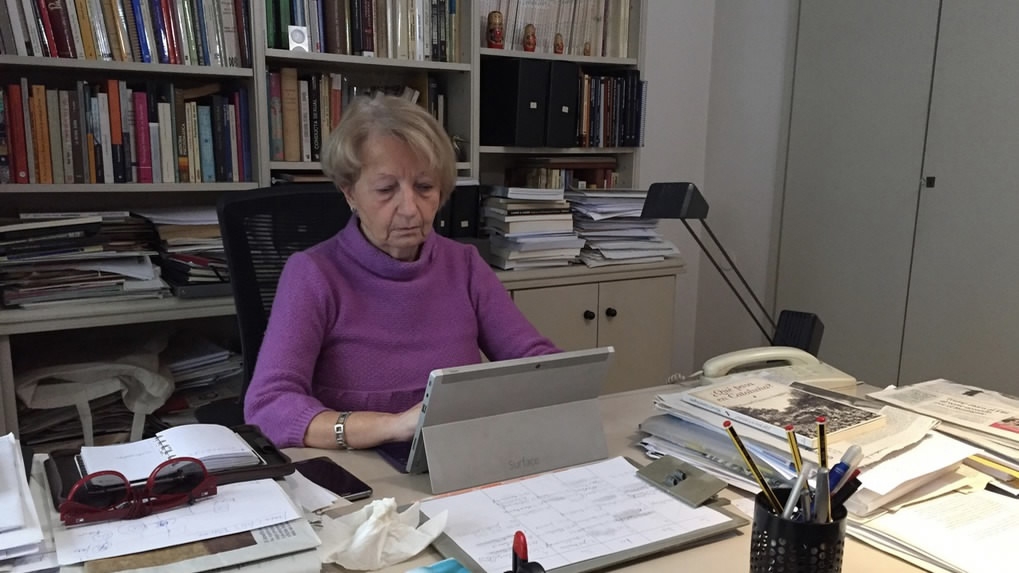
Politics
10:02, 05-Dec-2017
Reporter's Notebook: Judicial decision on Catalan independence leaders
By Al Goodman

Just as our bullet train from Madrid pulled into Barcelona, a Spanish Supreme Court judge released his ruling regarding the 10 Catalan pro-independence leaders, who have been in pre-trial prison for weeks on charges of rebellion and sedition for trying to break Catalonia away from Spain.
The judge kept four of the most important leaders, including the ousted Catalan vice president Oriol Junqueras, in jail, just as the campaign for snap Catalan elections is set to start on December 21. Junqueras is a leading candidate yet will have to campaign from behind bars, as will some others.
But the judge freed six other former Catalan cabinet ministers on bail, while maintaining the charges against them. Most of them are also candidates.
It’s shaping up as a highly unusual campaign. Tensions have been running high in Catalonia for months as the independence drive picked up steam.

Catalan Parliament building. /CGTN Photo
Catalan Parliament building. /CGTN Photo
Not long after the judge’s ruling on the prisoners became public, we drove past a pro-independence demonstration in Barcelona outside a Spanish government office. We stopped and filmed their chants and signs demanding freedom for all of their leaders, whom they call Spain’s political prisoners.
We talked with clinical psychologist Neri Daurella de Nadal, who says she and her colleagues from the Catalan Psychologists official professional body have seen an increase in patients with anxiety due to the deep divide between the pro-independence and pro-unionist camps.
“They have problems of insomnia, sadness, and strained relations among family and friends,” Daurella de Nadal said. “Parents complain their kids are asked at school if they support independence or not.”
We then visited Catalan parliament where the pro-independence politicians voted last October 27 in favor of independence for Catalonia from Spain. That set off a chain of events in which the Spanish government in Madrid used emergency powers to take direct control of Catalonia, ousted the government, dissolved the parliament and called the elections for December 21st.
The seven parties competing include three for independence, three which want to remain with Spain and one leftist formation that has not made clear which side it’s on, although it supports the right of self-determination for Catalans.

Clinical psychologist Neri Daurella de Nadal. /CGTN Photo
Clinical psychologist Neri Daurella de Nadal. /CGTN Photo
Polls say it will again be close, like the last elections two years ago, when the pro-independence parties won a majority of parliamentary seats, but not the popular vote.
Spanish Prime Minister Mariano Rajoy clearly hopes the unionist parties will win this time, including his conservative Popular Party, which has not done well in Catalonia for a long time.
Rajoy told a recent pre-campaign rally in Barcelona, “We want the December 21 election to have a massive turnout so that a new political stage can be set in motion, bringing peace, normality and coexistence, respect for the rules of the game and also of economic recuperation.”
But as the campaign starts, in addition to some leading candidates in Spanish jail, there’s the ousted Catalan president, Carles Puigdemont, in Brussels. He’ll campaign from Belgian capital, while trying to avoid extradition to Spain to face the same charges as his former aides, for leading the independence drive.
8813km

SITEMAP
Copyright © 2018 CGTN. Beijing ICP prepared NO.16065310-3
Copyright © 2018 CGTN. Beijing ICP prepared NO.16065310-3